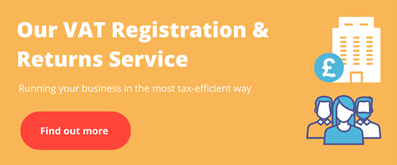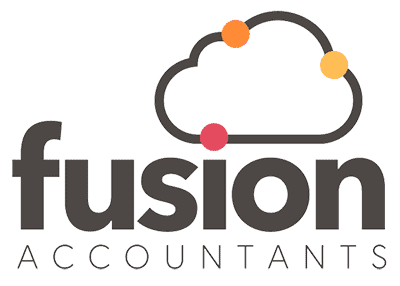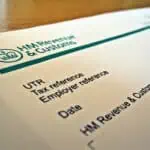Brexit – things your business needs to prepare for right now
Reading Time:
Getting ready for Brexit – How to prepare your business

The UK left the European Union (EU) on 31st December 2020. What does this mean for your small businesses and how will these affect your day-to-day?
This is quite a broad topic and we are only able to touch the surface here. If you are in any doubt as to what you need to do, then give us a call to talk through your specific situation and we will provide you with the Brexit business advice you need.
End of Brexit transition – overview
The transition period ended on 31st December 2020 and at the time of writing no deal has been agreed but that having been said whether there is a deal or not most of the contents of this post will still apply.
It is clear there will be a fair amount of disruption and an August survey found that 80% of businesses are unprepared for Brexit, so it is important that you look at the issue and make sure you are ready to go come January the 1st.
We recommend you visit the Government’s UK transition website which is constantly updated with the latest information. You can also check what the impact will be on you and your business using the ‘Brexit checker’ to get a personalised to-do list of actions. If you haven’t already, start putting your Brexit planning in place now!
Through all this, it is important to remember that we trade perfectly well with the rest of the world now, but it is also true to say that currently, trading with nations outside the EU is more difficult.
In general, you can expect extra forms to complete, more customs checks, greater tariff barriers.
This means that businesses, and especially finance teams need to remain agile and build in as much flexibility as they can.
Remember, also that in many cases the changes also affect Iceland, Liechtenstein, Norway, or Switzerland as they are part of various agreements with the EU that made trading with these countries easier for us in the past.
You also need to be aware that there may be restrictions on ownership of EU subsidiaries and a local representative may be required.
Working abroad

Free movement stops, as does the right to work, live and study across Europe on 31st December 2020, but it is important to remember that this is a two-way thing, so UK workers visiting the EU will be treated the same as any third-country national.
All overseas workers will need to apply using the ‘points-based immigration system’ and so if you have EU citizens already working with you then they need to have EU settled status.
If someone was living and working with you by 31st December 2020, they can apply for EU settled status for free up until June 2021, but you can expect a rush towards the end of this period so encourage people to apply early.
Coming to the UK to work
Workers coming to this country from the EU after December will need the right to work so no change in what you must do, but there will be a change in the documentation that allows this.
Previously, it was enough to have an EU passport to prove a right to work but the new immigration system means that if you want to hire anyone from outside the UK, including from the EU, you must be a Home Office licenced sponsor (although it is important to remember that sponsoring someone does not guarantee that they will be allowed to come to or stay in the UK).
There’s an excellent resource at CIPD that explains this in more detail but the message is to make sure your people are covered and check that your current staff have settled status.
Business trips
Now it looks like there will be an agreement that UK and EU citizens will be able to travel and work for 90 days without a visa within any 180-day period, but this is dependent upon a deal.
For workers who will be staying longer, they will need to abide by the rules of the member state.
So, the important thing is to keep a close eye on the government guidance for working abroad but probably more usefully contact the embassy of the individual member state and get the answer from the horse’s mouth.
Goods
Free movement of goods will stop at the end of the transition period
We have all seen the images of long lorry park queues in Kent and heard the concerns raised about ferries and container shipping. The ideal situation is if a trade deal is done, the UK remains in regulatory alignment with the EU and we get to trade freely but now this looks increasingly uncertain, so we all need to plan accordingly. Remember, that trucks also using the tunnel will need to apply for a Kent access permit before they enter the country.
You may see higher tariffs both in and out which means that components will cost more to acquire, and your goods will become more expensive to sell in the EU.
You will have to deal with new VAT regulations including accounting and paying VAT on imports and the EU may even require exporters to register within an EU state.
There will be more paperwork to deal with including assessing the WTO value for goods and assigning a commodity code. It is the trader’s responsibility to make customs declarations and provide the haulage company and driver with the correct documents. Traders will need to make customs declarations, possibly using the Customs Handling of Import and Export Freight (CHIEF).
Some good news is that there are Grants and Training available to help with sorting out systems and gearing up for the changes in EU trade.
If you run your own trucks, then you need to be aware that things will change for your drivers.
They may need to hold an international driving permit in addition to their licence and this will be the case whether they are delivering to an EU customer or just travelling through.
People
People travelling across borders, whether they are EU or UK nationals will now need to make sure they have at least 6 months left on their passport, so you need to start logging this information.
Insurance green cards are back, and every driver will need to obtain one of these or face a fine or confiscation of their vehicle (or both) do not forget health insurance for your drivers. The EHIC will no longer work so invest in some specific work-related health insurance.
For more information check out the official UK govt guide – “The Border with the European Union Importing and Exporting Goods – border model”.
This is a complex area and so you need to make sure you take good advice now! Again, for most of these aspects, we still have no clear agreement as to whether they will be in force. If there is a deal then they may change, if there is no deal then they will change!
Services

Although we have heard a lot about fishing and goods crossing the Irish sea, services account for 80% of the UK’s GDP.
Currently, businesses can use the UK’s VAT Mini One Stop Shop (MOSS) to declare sales of digital services to EU consumers but after December they will need to register in a member state to continue with this. Audit firms will need to be approved in the EU and similarly, EU firms will need to be approved to work in the UK. For most global firms this should not be a problem but for smaller practices, there could be an issue.
Staff who have professional qualifications may need to obtain some other form of certification. You should check with individual bodies as to the arrangements if you have people who are providing services to EU consumers or businesses.
GDPR alignment remains as the EU is ‘deemed adequate’ from data protection and privacy point of view but be prepared for this to change as the UK diverges. It is also possible that the EU may choose not to recognise the UK as a safe place for the storage and processing of data but now this is thought to be unlikely. The movement of data is not affected (for now) but be aware that companies might need to appoint someone based in the EU as their data protection lead but again this is all uncertain at the moment.
Now IP is protected within the EU but with the UK becoming a ‘third country’ this may not be the case from December onwards
Remember also that legal documents and contracts may need to be redrawn, especially where they refer to EU law, so it is important to check through these. You may need to operate two types of documents, one for trading in the UK and one for the EU.
The UK has maintained its participation in the Single Euro Payments Area (SEPA). This means you will be able to continue to send or pay in Euros electronically. But it may take longer. Although some temporary permissions have been granted (called the temporary permissions scheme) to allow some financial services firms to carry on working, these will change in time.
Unfortunately, we have to say that once again many of the aspects of trading services with the EU are not certain currently. The best advice we can give is to make sure you are watching the various governmental websites for changes.
Tip: Check out the sites in the country you are trading in for more information as most of them have accurate English versions.
Systems
The important message here is to keep your systems and processes agile. It is going to be important to make sure your systems are as flexible as possible as there will be changes but it is unlikely that this will be the end of the impact of Brexit.
The most likely scenario is that we leave with a skeleton deal and then over the next few years, different parts are tacked on to develop a trading relationship that works.
VAT
VAT is a good example. After 31st December it will be completely under the control of the UK government but, the agreement so far has been that NI will remain aligned to the EU, meaning that we will have two sets of rules.
The likelihood is that a major part of the UK will diverge on the rates of VAT and what it is charged on. So, you may need many more VAT codes and you may even have to register for VAT abroad.
You will probably need to collect more information about more people than ever before. The UK’s general approach has been to make it the employer’s responsibility to understand and apply the rules and then fine them if they do not. We would not expect this to change.
Remember you are in effect going to have two types of EU citizens, those with EU settled status and those who arrived after 31st December and if you get it wrong you will be fined. As the UK starts to diverge from the EU it is likely that different types of goods will need to be produced for each market.
Think of packaging or safety rules for example. This means that systems need to be able to cope with different versions of the same thing and be able to identify stockholdings, regulatory documentation, and invoicing in different areas. Services will be changing and again it is likely that things will remain the same for a short while after the 31st December and then begin to diverge.

Accounting Software
If you use systems like Freeagent, QuickBooks or Xero then you will find that updates are added automatically as new regulations come into force.
If you use on-premises solutions, then it will be important to make sure you apply and understand the ramifications of any updates that are produced as these will help you to remain compliant.
In the same way, think about your HR and Payroll systems and make sure that they have the ability to cope with things like settled status and passport dates.
The more options you have in your software the better and developing an agile mindset is going to be important as businesses will have to cope with whatever the politicians throw at us.
Getting your small business ready for Brexit!
It seems incredible that we are at this point so late in the game and we still have to say that many of the aspects of Brexit are still undecided but as the old saying goes “we are where we are”.
On the people front, be aware that finding staff after December may be more difficult and will require more paperwork.
Businesses need to assess the status of all their workers and make sure they will still have the right to work after 31st December. Also, assess whether visa-based travel will cause disruption.
You will need to think about your goods and how they are transported and whether you will be needing extra documentation after the transition. All businesses need to look at their legal documentation and be aware that references to different legal systems may need to change, and VAT is going to be changing as are the rules for reporting and charging.
The main message is to keep your eye on the business press and the government websites and if you are in any doubt get professional advice!
How Fusion Accountants in London can help post Brexit
Like all businesses, we are watching the ongoing impact of Brexit with a keen eye. Things are not going to stabilise for a long time, so we need to make sure that we are all on top of our game. We specialise in helping businesses develop their systems so that they are cutting-edge, and this will be important in the months to come.
We can also advise on the latest developments in VAT and help you navigate the issues that are coming your way. Call us now and let us talk about your situation and how we can help.
Extra resources

Here are some additional links where you can find out the latest news and information about Brexit.
| Source | Description |
|---|---|
| UK Government | New rules for businesses and citizens from 1 January 2021. |
| CIPD | Employing overseas workers in the UK |
| Enterprise Ireland | Exploring some of the issues that may affect the service sector as a result of Brexit. |
| CIPD | Guide to free movement of people and goods |
| Institute for Government | Guide to how VAT, Customs and Excise duties operate in the UK may change after Brexit |
| Chamber of Commerce | Import & Export guide |
| UK Government | New measures to accelerate the growth of the UK’s customs intermediary sector (ie recruitment, training and IT) to handle customs declarations |
| Financial Conduct Authority | How EU passporting system will be impacted |






